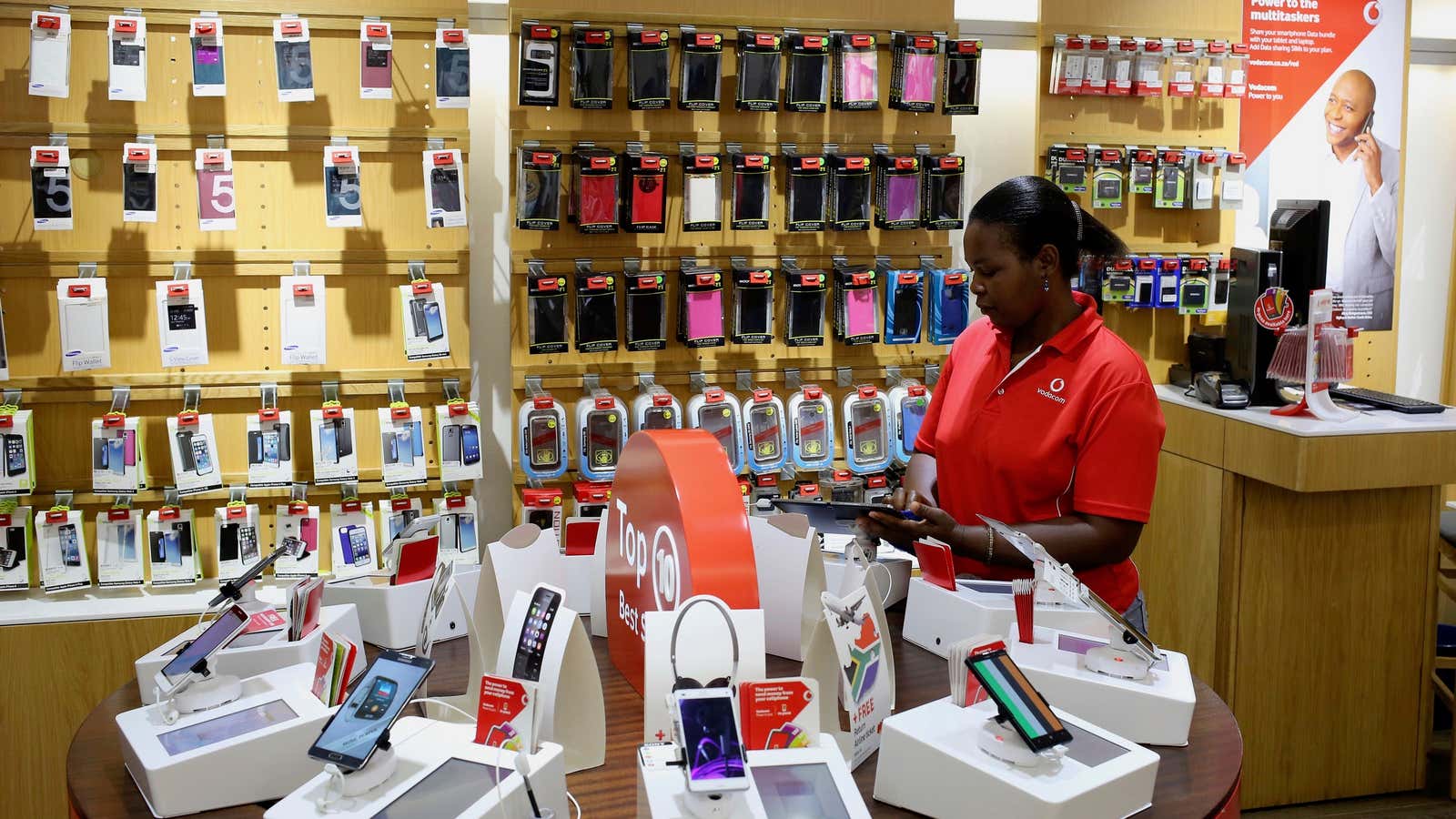Vodacom and MTN used South Africa as a springboard into the rest of the continent, creating a market that turned them into global players. Established as South Africa experienced a major social shift at the end of apartheid, they were celebrated as the businesses that could propel the country forward. Now, it seems, their success has come at the expense of poor, mostly black, South Africans.
Last week, South Africa’s Competition Commission, an independent watchdog ensuring business competitiveness, found that data costs in South Africa were so exorbitant that they were hindering economic growth. Strikingly, the commission found that the high data prices of MTN and Vodacom, specifically, affected the poor most.
“Pricing is limiting the ability of lower income subscribers to make greater use of data services, which in turn restricts the benefits of the digital economy to this class of consumer,” the report found.
It comes down to competition, says James Hodge, the commission’s chief economist. In markets outside of South Africa, MTN and Vodacom arrived as late entrants, facing stronger competition. At home, they were able to define the market with little regulation.
“They were the first networks in South Africa, had a long lead and built up what we call a first mover advantage strong position, and that’s become entrenched,” Hodge told Quartz. “And part of the problem is we should’ve regulated them earlier on, we didn’t and now that position is so entrenched, we have to look at more serious action.”
In South Africa, the pricing structure has evolved to affect poor people the most, says the competition commission. Those buying small bundles of data end up paying more than people who can afford to buy larger packages of gigabytes, or monthly subscriptions as part of their budget. On the flip-side, post-paid data prices—monthly packages that wealthier consumers can afford—compare favorably with international prices.
Out of a sample of 25 other African markets, South Africa ranked 17th when comparing how expensive pre-paid data is. South Africa’s own telecommunications regulator, Icasa, found that South Africa’s data prices are expensive when compared to other markers in southern Africa, or in the BRICS countries.
The backlash was immediate. Vodacom and MTN’s share prices fell immediately, while smaller competitors, like newcomer internet service provider Afrihost, were viewed more favorably by consumers. Vodacom may challenge the commission’s findings, while MTN has not yet commented.
An April 30 consumer survey found that one in ten MTN and Vodacom subscribers were considering switching networks. Yet, seemingly comfortable in their monopoly, the survey found that 44.4% of customer complaints on social media went unanswered.
Sign up to the Quartz Africa Weekly Brief here for news and analysis on African business, tech and innovation in your inbox
